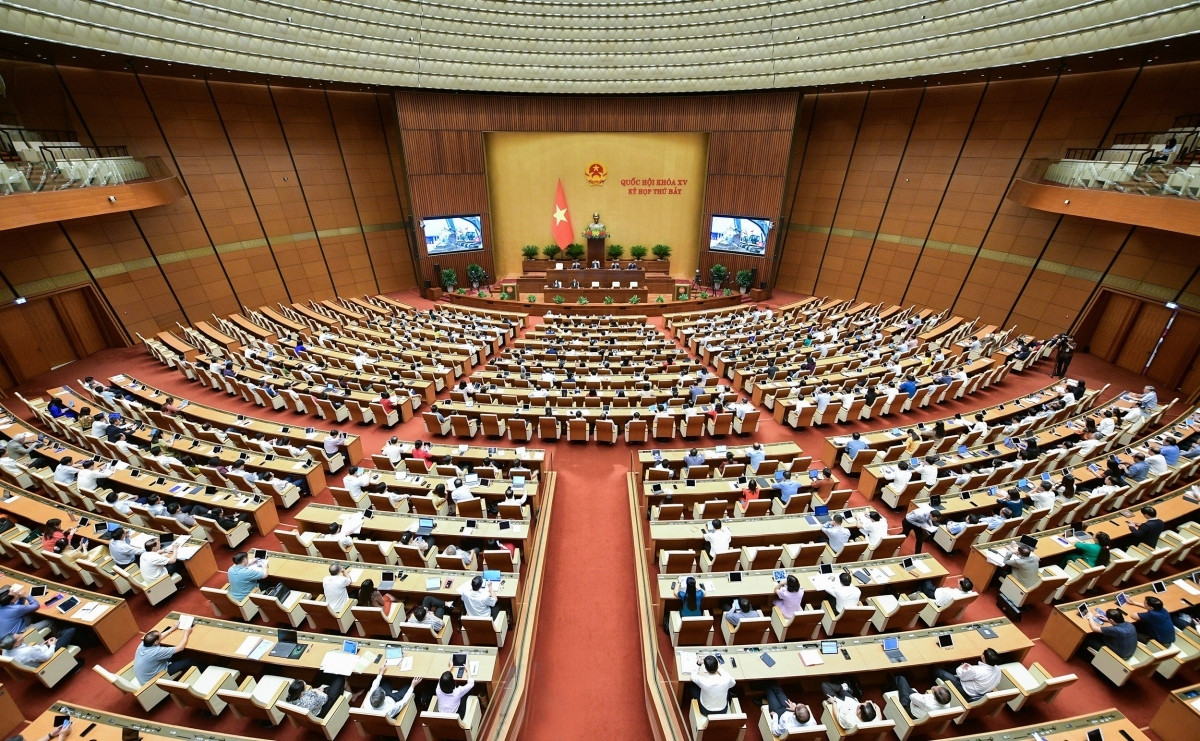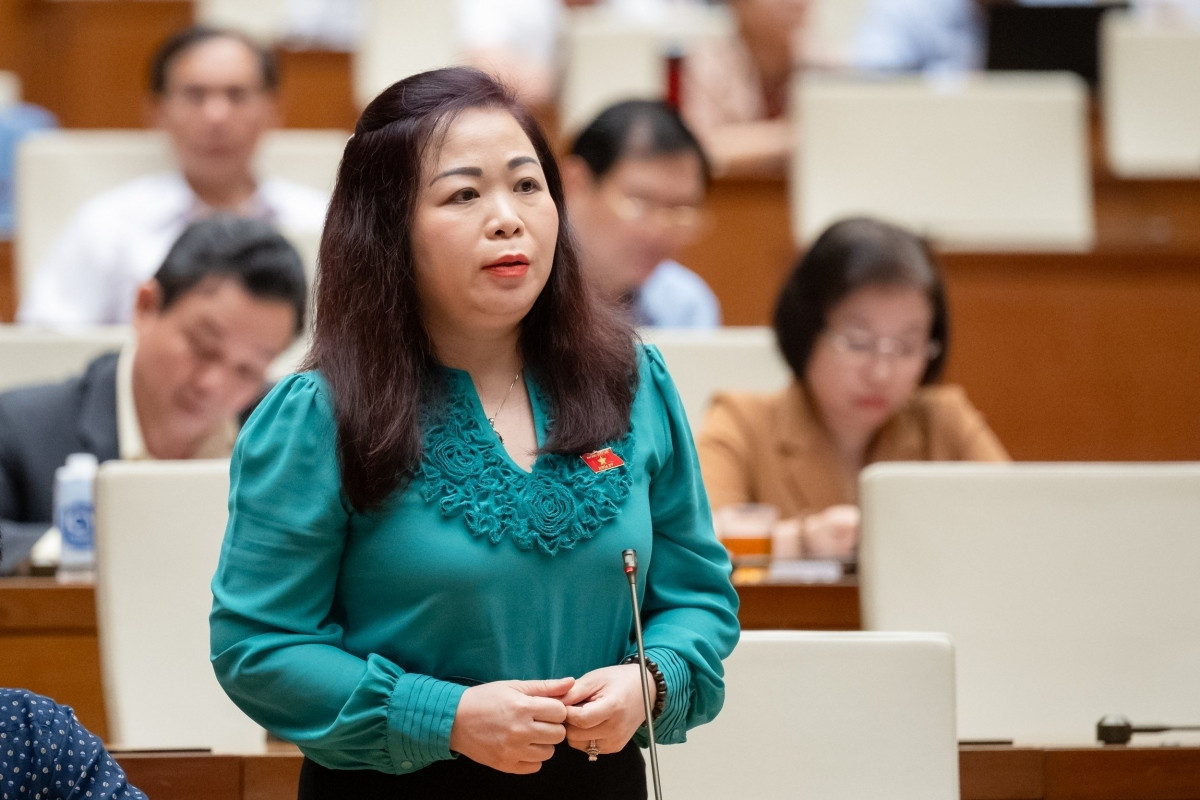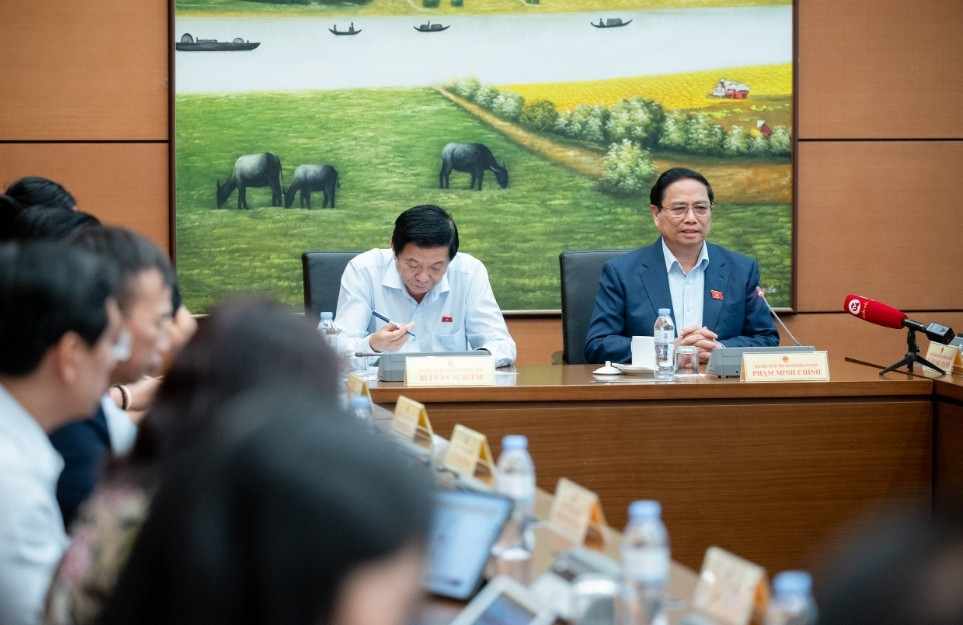
Slow progress in implementation

In a report, the National Assembly supervision team pointed out that the implementation of the economic recovery programme as part of the National Assembly’s Resolution 43 two years ago has contributed to implementing the ‘dual goal’ of bringing the COVID-19 pandemic under control and rebooting the ailing economy. However, the results have yet to meet expectations due to limitations.
The report shows preparations for some investment projects are slow going, and the list of projects submitted to the National Assembly is not close to reality that requires adjustments. Notably, investment projects in the fields of health and information technology are progressing slowly, prompting the Government to ask the legislature to extend the implementation time.
Besides, policies to support people and employees impacted by the pandemic in some localities remain slow going due to difficulties in the appraisal and settlement of payment of support funds for beneficiaries.
Consequently, several policies have yet to achieve their set goals. The 2%/year interest rate support package worth VND40 trillion is considered the lifesaver for businesses bearing the brunt of the pandemic, but the disbursement has so far been very low, meeting only 3.05% of the plan. Similarly, the housing rental support policy for employees has only reached 56% of the plan.
Delayed promulgation of guiding documents and inconsistent regulations leading to confusion in implementation are among the reasons pointed out by the supervision team.
“Resolution 43 has an implementation deadline of two years, but it took a year to issue documents,” said deputy Nguyen Thi Viet Nga of Hai Duong province.
“Resolution 43 was released to solve urgent problems, but the promulgation of documents is still as slow as before,” she added.
Deputy Ta Van Ha of Quang Nam province pointed to the fact that Resolution 43 was issued in a special context but it was implemented in compliance with normal provisions of the law.
“The special policy should be implemented in a fast and timely manner in a special context. In fact, we did not simplify procedures to materialise the policy, resulting in slow progress and ineffectiveness,” said Ha.
Fear of responsibility

Meanwhile, other deputies agreed that the shifting of the burden of responsibility and the fear of responsibility are the two biggest barriers leading to stagnation, reducing the effectiveness and efficiency of Resolution 43 in particular and of the economy in general.
Deputy Nguyen Anh Tri of Hanoi city even compared the shifting of the burden of responsibility and the fear of responsibility to a disease that has spread very quickly among civil servants at all levels and in all sectors.
Deputy Nguyen Huu Thong of Binh Thuan province raised the question of why such the psychology has existed, though the Party and State have introduced mechanisms to encourage officials to dare to do and take responsibility for the common good. He recommended that the National Assembly and the Government make an indepth analysis, identify causes and come up with effective solutions.
Minister of Planning and Investment Nguyen Chi Dung agreed with the deputies about shortcomings in implementing the economic recovery programme, and proposed accelerating thorough decentralization and saparation of of power between the Government and localities, and between the National Assembly and the Government.
“The implementation time will be shortened a lot if the National Assembly only focuses on major issues, including policymaking and supervision, while the implementation of detailed issues will be handled by the Government. By doing so, the National Assembly still manages its function and role, without going in detail,” he said.
Lessons to be drawn

In response to the deputies’ arguments, Prime Minister Pham Minh Chinh noted that Vietnam has introduced the economic recovery programme without precedent, therefore the implementation required careful considerations.
He also pointed out that many businesses have hesitated to ask for accessibility to the 2% interest rate support package because they fear they could not pay back and recover from pandemic consequences in the end. He proposed the National Assembly to transfer the remaining amount of the VND40 trillion package to the Social Policy Bank.
However, he also agreed that there are many binding procedures leading to slow disbursement of investment capital, not to mention the shifting and fear of responsibility. He assured that the National Assembly and the Government would continue to iron out snags regarding institutions.
He requested an overall and objective evaluation of the programme to see “This is a correct and timely policy of the National Assembly”. He also requested drawing experience to better implement the goals of controlling inflation, stabilizing the macroeconomy, and promoting growth.
VOV